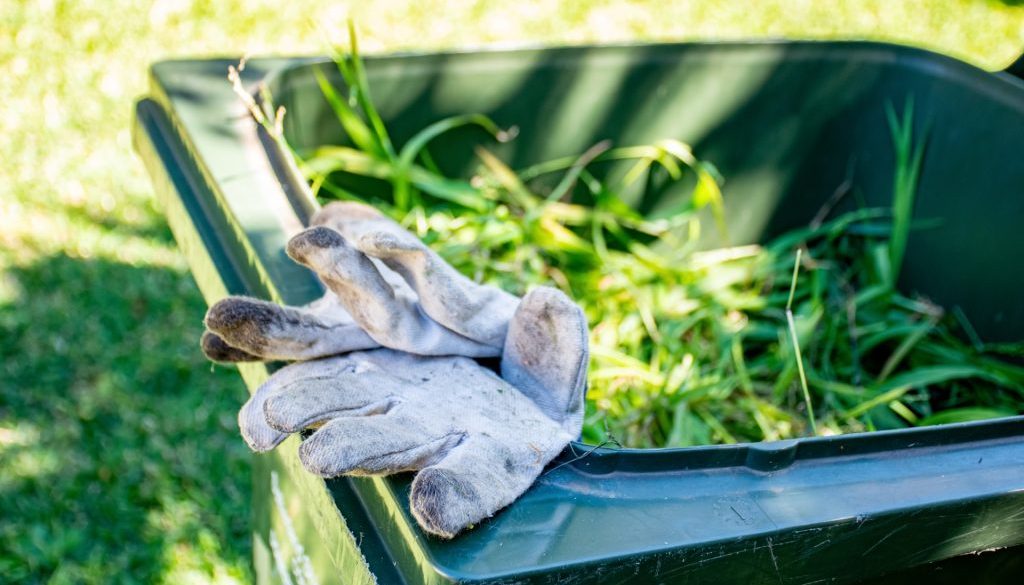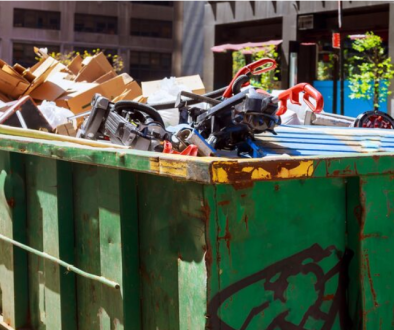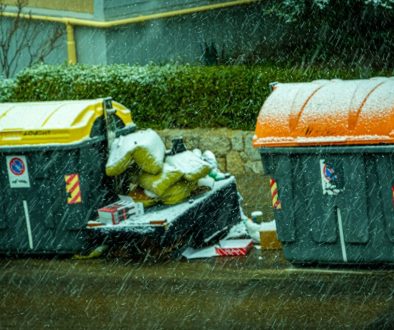Gardening activities, including landscaping, tree maintenance, and general garden upkeep, generate varying amounts of waste that require careful management to maintain a clean and organised outdoor space. Additionally, adopting responsible and eco-friendly garden waste management practices is essential for supporting environmental sustainability and complying with local waste disposal regulations.
As a family-run skip hire and aggregate company servicing Staffordshire, Enviro Skip Hire specialises in providing efficient garden waste management solutions, focusing on skip hire, recycling initiatives, and promoting environmentally conscious practices for garden waste disposal.
In this guide, we will provide you with an overview of effective garden waste management strategies, including practical tips for utilising skip hire, composting, recycling, and responsible disposal methods for various types of garden debris. We will also underscore the importance of partnering with an experienced and reliable skip hire company like Enviro Skip Hire that can support streamlined garden waste management processes, ensuring compliance with environmental guidelines and contributing to sustainable gardening efforts.
Skip Hire for Efficient Garden Waste Disposal
One of the most effective solutions for managing garden waste is hiring a skip, which offers a convenient and practical means of rubbish disposal. When considering skip hire for your gardening project, keep these essential factors in mind:
1. Choose the Appropriate Skip Size: Assess your project’s expected garden waste volume, taking into account the size of your garden and types of waste typically generated, such as grass clippings, tree branches, or soil. Select the skip size that best suits your garden waste disposal needs.
2. Observe Placement and Permit Regulations: If you need to place the skip on public property, obtain any required permits and adhere to regulations governing skip location and hazard prevention.
3. Partner with a Trusted Skip Hire Provider: Collaborate with an experienced and reputable skip hire company, like Enviro Skip Hire, that prioritises environmentally friendly waste disposal practices and can offer tailored solutions for your garden waste management requirements.
Composting: Transforming Garden Waste into Nutrient-Rich Fertiliser
Composting is a highly sustainable method for managing organic garden waste, turning it into nutrient-rich fertiliser for your plants. Here are some tips for implementing composting in your garden waste management strategy:
1. Designate a Suitable Compost Area: Find a suitable location within your garden to create a compost area, opting for a flat, well-drained space with partial shade.
2. Use a Balanced Mix of Materials: To encourage effective decomposition, create a diverse mix of compostable materials, including green waste (e.g., grass clippings and vegetable peels) and brown waste (e.g., dried leaves and small branches). Avoid composting invasive plant species or diseased plant material to prevent the spread of pests or infection.
3. Maintain and Monitor Your Compost: Regularly turn and aerate your compost pile, ensuring sufficient oxygen for the decomposition process. Keep the compost moist and inspect it periodically to check the progress of decomposition and identify any potential issues.
Recycling Guide for Non-Organic Garden Waste
While organic garden waste can often be composted, non-organic garden waste, such as plastic plant pots, landscaping material, and empty fertiliser containers, can and should be recycled. Follow these guidelines for responsible recycling:
1. Prepare Items for Recycling: Ensure that non-organic garden waste items are clean, dry, and free of residues or organic materials before placing them in dedicated recycling bins.
2. Check Local Recycling Guidelines: Research local recycling guidelines and facilities that accept specific types of non-organic garden waste, ensuring that items are processed and recycled correctly.
3. Minimise Waste Generation: To reduce non-organic garden waste, opt for reusable or recyclable gardening products and packaging when purchasing garden supplies.
Responsible Disposal of Hazardous Garden Waste
Hazardous garden waste, such as pesticides, herbicides, or certain types of treated wood, requires careful management to ensure safe and responsible disposal. Consider these tips for handling hazardous garden waste:
1. Identify Hazardous Waste: Familiarise yourself with the labels and common hazardous gardening waste categories, such as chemicals, solvents, or pressure-treated wood with harmful preservatives.
2. Store Hazardous Waste Properly: Securely store hazardous garden waste in their original containers, keeping them away from heat, fire, and direct sunlight to minimise risks of spillage, contamination, or accidental exposure.
3. Dispose at Designated Facilities: Ensure the correct disposal of hazardous garden waste by taking them to designated waste management facilities that accept hazardous waste. These facilities have the necessary infrastructure and expertise to process and dispose of hazardous materials safely and responsibly, in compliance with environmental regulations.
Final Thoughts
Effective garden waste management, encompassing skip hire, composting, recycling, and responsible disposal practices, is critical for maintaining a clean, well-kept garden and supporting environmental sustainability. Collaborating with Enviro Skip Hire, a trusted and experienced skip hire in Cheshire, can significantly streamline your garden waste removal efforts while ensuring environmentally conscious waste disposal practices.
By integrating these garden waste management strategies into your gardening routines, you can contribute to a greener, more sustainable environment within your outdoor spaces and the broader community. Together, we can foster a culture of responsible, eco-friendly gardening and waste management practices, cultivating a more sustainable future for our planet and future generations.




